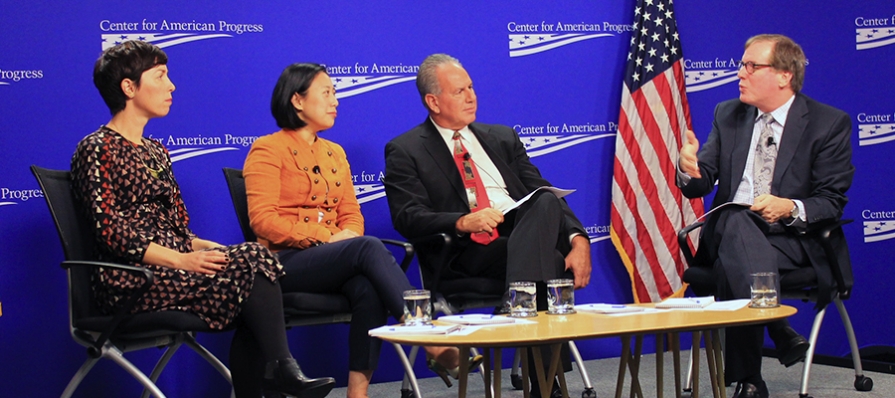Not your typical job training

It not only develops and provides custom job training for companies, it also offers an array of services, such as strategic workforce development. Its website intentionally looks like a business website rather than that of a community college. Its clients include local businesses and government agencies, as well as corporate heavy hitters such as Coca-Cola, Nissan and US Airways. Instructors interested in teaching at the college submit a "consultant application."
A corporate vibe is exactly what Eugene Giovannini, president of the college, wants to convey. He wants local, national and even international companies and industries to know about his college and its approach to workforce development. (See the promotional video at the end of this article.)
“We have an employer-first philosophy,” said Giovannini, whose college serves as the central point of contact for workforce needs for the 10-college Maricopa County Community College District.
Building on
Finding alternate ways to accelerate career training was the theme of a panel talk on Tuesday in Washington, D.C., sponsored by the Center for American Progress. While Giovannini presented innovations undertaken at Maricopa, other panelist discussed "nanodegrees" and other flexible workplace credentials.
Officials from Udacity, a for-profit online education organization, and AT&T outlined their partnerships to develop stackable credentials to help workers move along a career path as they acquire more skills. (Maricopa Corporate College focuses on digital badges that are transferable and portable.)
Clarissa Shen, vice president of business development at Udacity, said many companies don’t know how to properly assess workforce skills. Too often, human relations staff ask for a resume rather than assessing project-based learning and don't include, say, an engineer, to gauge an applicant’s skills.
Hear a radio interview with Giovannini
“It’s skills over schools, projects over GPAs,” she said.
Giovannini, who serves on the American Association of Community Colleges board of directors, agreed that companies sometimes don't know what they need. When Maricopa works with a client, it first assesses a company's needs through interviews with officials. About a third of the time, it's clear that they don't know what they need or what the requirements should be, he said.
Getting attention
Philanthropic arms of companies such as AT&T are also interested in developing better and faster training programs. The company invested about $1.5 million to start three nanodegree programs with Udacity, said Anne Wintroub, director of social innovation at AT&T.
Maricopa is also garnering attention. As companies it works with see the benefits of the college as a full workforce provider, larger companies, philanthropies and industry sectors — such as insurance and information technology — are reaching out to Maricopa, Giovannini said.
But developing a college such as the Corporate College isn’t easy. Giovannini noted that the college district made a decision for the college to run like a business, and provided it with its own full staff and resources. Other community colleges typically have a workforce development department that’s manned by a only few people, and it usually doesn’t have its own sales and marketing like his college does.
Policy side
The panelists also discussed what could be done at state and federal levels to encourage more innovation in career training. Giovannini said there needs to be a “clear, simple and precise” way to make student aid available for certain short-term, non-credit training programs.
That’s a point emphasized by the Center for American Progress in a new brief. It noted that the U.S. Education Department could, for example, waive certain regulations that would permit testing some innovations. For example, students in such short-term programs could be eligible for student aid if the programs are part of a “comprehensive and coordinated system” of stackable credentials.
For original article, visit Community College Daily.
